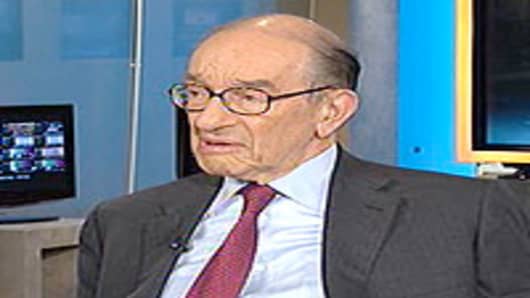Former Federal Reserve Chairman Alan Greenspan said that the recent stock market decline is “typical” of a recovery, and that international instability has more to do with the recent decline than problems in the United States.
“What we’re looking at is an invisible wall, which we’ve run into here. Which, essentially, as far as I can see, is a typical pause that occurs in an economic recovery,” Greenspan said in an interview with CNBC. “Ordinarily we’re saying that the stock market is driven by economic events, I think it’s more in the reverse.”


